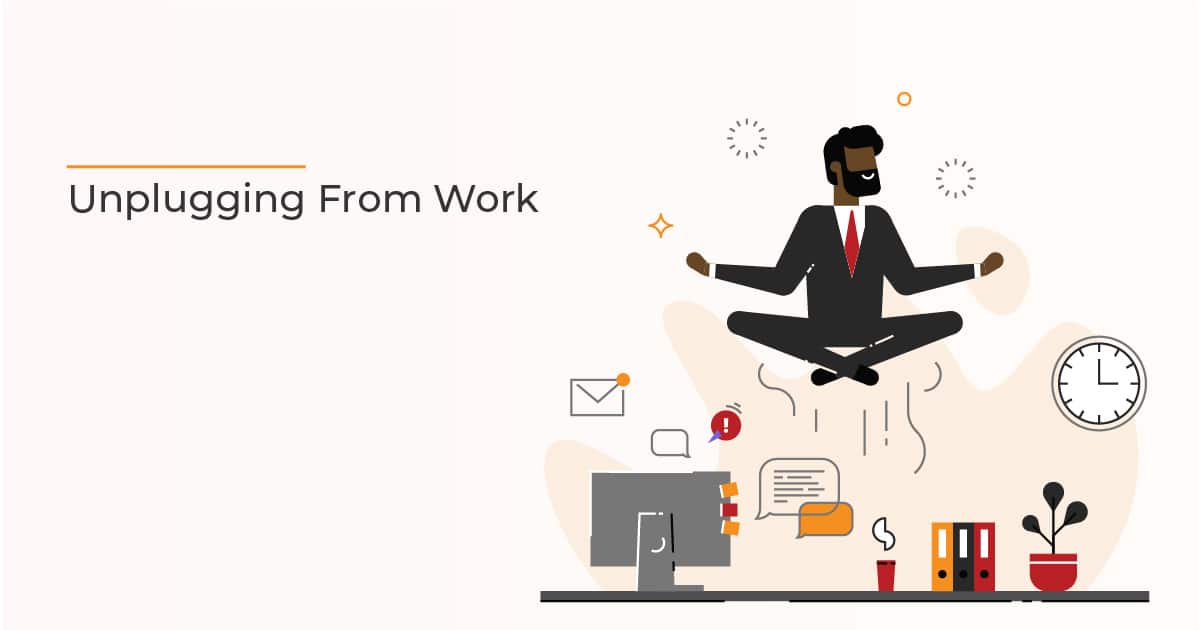Emails, phone calls, WhatsApp groups, name them. It is increasingly becoming hard to unplug from work in the modern working environment. Apart from that, there are those who find it hard to segment their work life from their personal lives. They will brainstorm about a certain project while on their commute home, or go through the list of tasks pending while having dinner, or even plan the next day just before they sleep.
Work-life balance is important and constantly thinking about work can be stressful. The fact that you are always thinking about work means that you may have physically left the office but you are mentally still there, meaning that you never mentally clock out. This can lead to fatigue, apart from causing you not to attend to other matters pertaining to your personal life.
In a world where being busy and the hustler mentality are the latest fads, thinking about work constantly has become the norm rather than the exception. People take pride in saying or looking busy. So bad is the problem that most people routinely carry work home, thanks to the ability to work online, while others constantly check and respond to their emails at ungodly hours.
What all this means is that you are not getting enough time to rest, which is a major cause of burnout. Being a workaholic is nothing to celebrate and it reduces your productivity and so, make sure you always leave the office both physically and mentally. Here are tips on how to unplug from work at the end of each day;
Table of Contents
1. Find an activity to keep you busy at the end of the day

It may sound too easy but many people actually keep thinking about work after work because they have nothing that occupies them mentally. The reason why it is easy to focus on your work when you are at work is that you are mentally preoccupied with your job. However, after intense work and focus during the day, you probably have nothing else to keep you busy and your mind strays back to work.
Well, it is about time you found something else to do away from work. It could be jogging, or taking a walk or playing a game. Whatever it is, make sure it is something that fully engages your brain. While you might argue that that may not make you switch off, research shows that people are not good at multitasking and so while engaging in an activity you enjoy, you will most likely push thoughts about work to the back of your brain.
With time, this becomes your routine and at the end of the day, you will be looking forward to going home to unwind while doing whatever it is that you enjoy. The result will be the ability to unplug from work effortlessly.
2. Avoid ranting about work outside work
Granted, work can sometimes be stressful and it is not uncommon to hear people venting to their friends or colleagues while commuting home from work at the end of the day. This can be therapeutic but it also has the effect of making you think about work when you are away from work, and not in a pleasant way. Venting means that you are replaying unpleasant situations in your mind, which could make a small issue bigger than it is supposed to be.
While venting can be relieving to you, it actually means that you are actively thinking about work while off work. So, limit your venting so that your mind can get to focus on other things outside work. Over time, you will realize that thinking about something different outside work gives you more clarity the next day when tackling a problem, which improves your productivity. In short, give your brain a break and you will realise just how much easier it becomes to solve problems.
3. Avoid work communication outside work

Modern means of communication are designed to help us stay connected at all times, partly supported by the hustler mentality. The ease of communication made possible by our phones makes things worse as you can access your work emails and communication channels from anywhere and at any time.
Well, this is harmful to your mental health as you are constantly worried about work. Therefore, it is important to log off all work-related communication channels outside work so that you are able to focus on rest and relaxation. Staying connected to your job’s communication channels can be distracting, which causes you to constantly think about work, even when you should be out having fun.
4. Be intentional with your time

Yes, leaving work means that you are intentionally going to be the other person you are after work. However, with thoughts about work even when you are off work means that your mind stays clocked in and you don’t get to relax.
Well, the brain is an interesting part of a human being as it can be trained to do just about anything. If you are finding it hard to unplug from work, you can create a schedule which forces you to be intentional about your time. Such a schedule will train your brain to switch between work and other activities which help you unwind.
Unplugging from work is important in helping you unwind at the end of a busy day. It is one way of ensuring that you remain productive as it allows you to take a break from work and rejuvenate, which leads to improved productivity. So, make sure you get off work both physically and mentally at the end of the day.
How do you unplug from work? Share your tips with us in the comments section.





